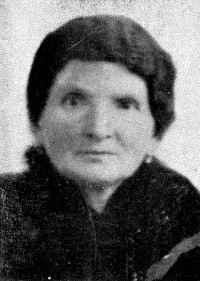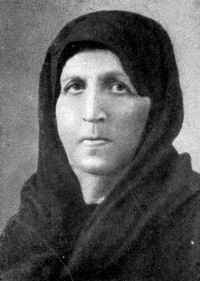 |
 |
|
|
by Yosef Durman
Translated by Yael Chaver
The Medical Assistance (Biker–Khoylim) Society
The Medical Assistance Society played a very important role in Gorlice. Its mission was to supply poor sick people with medical help.
In order to grasp the importance of this society, we must remember that during those years there was still no organized communal organization for medical assistance, such as exists here in Israel. True, there was a general “Sick Fund” in town. But due to conditions at the time, only a very small proportion of the Jewish population could to participate.
Private medical treatment and medicines were very expensive, especially when treatment recurred and was prolonged. Many people couldn't bear the expense.
Because of this, the Biker–Khoylim was like an angel from heaven for many people.
Biker–Khoylim used a system of anonymous donations (matan be–seter). Without fanfare, without fuss, they helped Jews to go on with their lives.
Above all, it was an unusual society. It was rare to see one of their notices on the synagogue door.
Its income was derived from collections usually made during the week of Passover or Sukkot.
Donation collection was done personally by the two devoted managers, Shloyme Ashkenazi and Pinye Raab, who ran the Society's activities with true dedication.
[Page 68]
The Society for Women in Childbirth, and Healing
This society took care of penniless women giving birth, as well as of sick people who were admitted to the city hospital, and supplied them with kosher food.
I believe it was the only society in town that was administered and run exclusively by women.
Women who wanted to be active socially and philanthropically found a broad area of activity in this society. The director of the society was Rebbetzin Khashe Taytlboym, the wife of Rabbi Shloyme Taytlboym, may God avenge his blood.
Rebbetzin Taytlboym was very popular in town. This was probably why she was known throughout the town as “Khashe.” She managed the “Supporters of Women in Childbirth” (Tomkhei Yoldos) women's society with great dedication. It was well known that she used to visit the new mothers in person; she was interested in everything they needed and in the best way to help them.
Individual “Experts”
When mentioning the Biker–khoylim society, we would not be doing our duty if we did not mention all the individuals who joined in this activity “with their own hands” – in other words, they were active outside the framework of any society, and, of course, not for compensation.
These individuals were not just visitors who helped the sick person groan – they often actually helped him a great deal, with acts as well as advice.
They were experts in various diseases, and were successful in many cases. Of course, they had not gained their knowledge in the Jagellonian University.[1] It was simply folk expertise, passed on from one person to another, and augmented by each person's own experience and powerful desire to help others.
I would like to mention several examples that live in my memory: Reb Moyshele Binder was a master at repairing a hernia, from which many Jews suffered.
Reuven Amshanker was an expert at sprained hands and feet, and was also successful with fractures of arms and legs.
Among the women, Leah'tche[2] Balzam was the savior, a kind of medical consultant. She was a very capable woman. She always found time for others, although her own husband, Shloyme Balzam, was infirm and bedridden, and she also had to care for her own children.
She was especially knowledgeable about [?][3]. If a child had a headache, or an adult had a pain, Leah'tche Balzam was the first person to ask for advice. She also applied cupping glasses and leeches, and exorcise the evil eye. I can recall one time when she soothed my eye and I immediately felt better, as if her hand had taken the pain away…
It should also be mentioned that all these people did their work with great self–sacrificing devotion and were always ready to go wherever they were called to a patient. Day or night, weekday or Shabbes, in the middle of a holiday meal or any business – nothing hindered them from helping another person.
May this cause God to think well of them!
|
|
|||
| Leah'tche Balzam | Rebbetzin Yocheved, née Tversky, wife of Rabbi Elisha Halbershtam, of the Chernobyl Hassidic leaders |
Translator's Footnotes
|
|
JewishGen, Inc. makes no representations regarding the accuracy of
the translation. The reader may wish to refer to the original material
for verification.
JewishGen is not responsible for inaccuracies or omissions in the original work and cannot rewrite or edit the text to correct inaccuracies and/or omissions.
Our mission is to produce a translation of the original work and we cannot verify the accuracy of statements or alter facts cited.
 Gorlice, Poland
Gorlice, Poland
 Yizkor Book Project
Yizkor Book Project
 JewishGen Home Page
JewishGen Home Page
Copyright © 1999-2026 by JewishGen, Inc.
Updated 25 Sep 2015 by JH